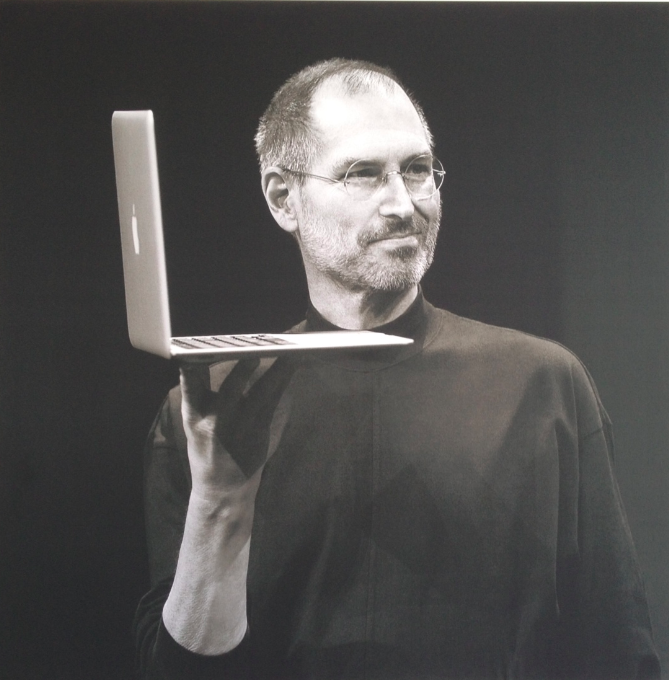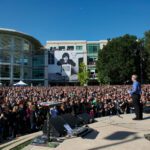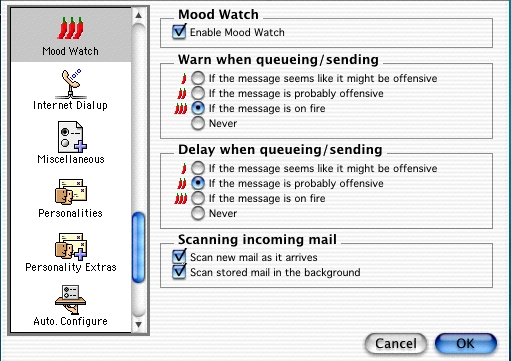
The little things Apple misses from Steve Jobs
There probably have been millions of articles written about the Apple of Tim Cook and how it differs from the Apple of Steve Jobs. I’ve always been hesitant to add to that.
Having worked at Apple for 12 years under Steve and 8 years under Tim, that gives me plenty of exposure to both eras. I’ll start with a quick review of the big things that people generally agree Apple misses from the loss of Steve before getting to the little things.
The big things Apple misses
After Steve died, the majority of pundits seemed to predict some level of doom for Apple, as if Steve were personally responsible for the entirety of every Apple product. It was as if he were the sole person making every decision at Apple. The second most common thing mentioned is the loss of Steve’s relentless curation of Apple products. It was argued that Steve had once-in a lifetime skills in these two categories.
This may be true, but it must be recognized than Apple has enjoyed great financial success under Tim Cook and also product success with Apple Watch and AirPods specifically. To balance it out, there were also duds like HomePod, neglect of the Mac, and a decline in software quality. But you could pluck similar things from the era when Steve was in charge.
The little things Apple misses
What interests me the most is the little things Apple misses. Just like Apple used to be famous for the clever little touches they added to their products, Steve had many little facets to his personality. Each one may not be significant on its own, but together, I think they add up to a huge loss.
Giddy excitement
Steve had an infectious excitement that we felt working at Apple and that people couldn’t help but notice at product introduction events.
Seeing him around campus, he was either deep in thought—possibly talking with Jony Ive or another confidant—or often with a grin on his face. But he always had a spring in his step, even close to the end. He felt like a little kid in an adult body. If you were having a down day, it was hard not to be uplifted by the sight of your CEO practically skipping down the halls.

Although I don’t question that Tim is excited about Apple, you just don’t feel it. He comes across far too rehearsed. Steve’s combination of being very articulate, possessing great presentation skills, and this giddy excitement made you want to feel the same excitement he did about the products.
Technical prowess
Steve was never considered to be much of an engineer, but he could speak engineer language and understood the smallest of technical details. Even though he would motivate and push engineers to do the impossible, he also understood what was currently possible. How else would you know what’s impossible to demand? 🙂
Steve spent his life around engineers and artists at both Pixar and Apple. Tim simply does not have that background so you can’t criticize him for lacking in it. Nonetheless, having a CEO of a tech company be very highly technically savvy is a huge win.
Two peas in a pod
It’s cliché to say, but Steve and Jony Ive were definitely greater than the sum of their parts. By losing Steve, we also lost a great deal of Jony as well. I don’t know Jony or much about him, but I feel like he never fully recovered from Steve’s death.
I would go to lunch fairly late every day and would inevitably see Jony and Steve having lunch and immersed in conversation. I’d often see them walking and talking together. They were joined at the hip. I typically would see him alone—on his way somewhere—or with Jony.

I hate to criticize such a close friend of Steve’s but the decline in Apple software quality is pretty closely aligned with Jony taking ownership of it in addition to his usual hardware duties. Without Steve to balance him out, he was just out of his league.
iOS 7 was one of Jony’s first software projects, widely regarded as a train wreck which took several years to fix. You’ll often hear the phrase “this would never have happened under Steve” and in this case, I think it’s true. Steve was good at reeling things in and stripping them down and that’s a huge loss.
Belief and respect
Before working at Apple, I was used to working for relatively uninspiring and often clueless CEOs. One thing that I found refreshing at Apple was that—even though people had their differences—people respected Steve and believed in the direction he was taking the company.
This had a profound affect inside Apple. If Steve was pushing the company in a specific direction combined with that respect, it was much easier to do your day-to-day job. Most jobs involve a lot of smaller decisions that would never rise to Steve’s level. But because we knew the path we were on, it was easy to make these smaller decisions ourselves.
In a sentence, we understood the mission we were on and we respected the messenger.
Visibility
I’ve worked at companies with 200 employees where we’d see the CEO twice a year at company meetings. He was holed up in his office or meeting with his directs all the time—or maybe playing golf—and never interacted with anyone else.
I worked at Infinite Loop for 19 years, with 12 of those under Steve. For such a large company, Steve was a routine presence around the company. He was often walking in the inner quad area of the campus, in the hallways, and would drop in frequently on projects important to him. He ate in the café every day as far as I can tell.
It’s easy to feel like there’s no one steering the ship if you never see the captain, so his frequent presence was very comforting. Even saying hi to him felt like an acknowledgment that you were a part of what everyone was working towards.
Culling
You’ll sometimes hear stories about how Steve is this awful tyrant and how he cruelly disassembled a project someone was working on during a presentation. All these stories have one thing in common: they come from former Apple employees.
Now, you could argue that a current employee would never talk, but I think a disgruntled one would talk anonymously at least. There are many cases of this.

I’m calling this trait “culling” because Steve was not only very direct, he was seeing how you handled the pressure. If what you were demoing to him was crappy, he would tell you it’s shit. Now, some people would take great offense at that, typically those with larger egos, while others see it as just part of the making great products.
Over time, I think this led to management and lead engineers being thick-skinned and willing to change when the CEO told them they were way off track. If you’ve worked in software, I think you can see the benefit of being able to take criticism.
Overall, I think it led to a stronger workforce that was less prone to petty politics or bad-mouthing others. Instead, people would criticize products, not people and that led to great people making great products.
Hiring
With a huge notable exception over his entire career— John Sculley—Steve really knew how to hire exceptional people. The talent pool that was inherited by the NeXT acquisition was phenomenal as well as hiring amazing people like Tim Cook.
I imagine a form of culling took place in a Steve interview as well. If you crumbled under difficult questions that might be highly critical of your current job, how could you survive at Apple?
Public Presentations
There’s general agreement that Steve was a great presenter, possibly one of the best ever. What is interesting to me is how that affected Apple employees. Certainly, having something you worked on or cared about demonstrated on a big stage with media present was a great feeling. But to have Steve be the presenter was an amazing feeling.

When I worked on Mail in the very early days, we were generally in every keynote, primarily because there weren’t many apps on Mac OS X! But still, to have your work presented with the giddy excitement I mentioned previously was a great motivational factor.
Internal presentations
Only Apple employees saw these except for a few that leaked over the years. Employees would wait in line to see a his multi-hour communications meetings! How many can say that for their companies?
Even though Steve was a great marketer, these meetings were generally very straightforward and often very blunt. Not a lot of spin. Often a response would be “No. Next question!” rather than a drawn out politically savvy response.
Here’s one example of this. One employee got up to complain about his salary, feeling that Apple’s rising success—this was around 2005—was not reflected in his paycheck. Steve asked him “Do you have stock?” and he answered “Yes” and Steve answered with “Next Question!”
I’m sure he wasn’t the only one that felt like their salary could be higher but Steve’s response cut to the chase and people left thinking they had less to complain about. If we all work towards the success of the company and it’s reflected in the market, we had nothing to complain about.
And he was right.
Conclusion
There are some big gaping holes left behind by Steve, but also quite a few smaller ones that add up to something significant. He is sorely missed.





